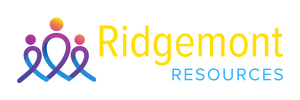|
7/8/2024
Streamline Your Time-to-HireHiring the best pharmacy candidates before your competitors can scoop them up is a big challenge. Leverage these 7 tips pharmacy hiring managers can use to streamline time-to-hire:
Hiring the best pharmacy candidates before your competitors can scoop them up is a big challenge for hiring managers. Move your best candidates through the hiring process faster with less stress for both yourself and candidates by leveraging these 7 tips:
 Behavioral or situational interview questions can be tough. Surprisingly, it’s my most intelligent and qualified pharmacist, management and director-level clients that feel they struggle the most. Candidates fade in these critical moments - not because they lack qualifications or experience – but because they failed to connect with their audience. It’s common for them to tell me they felt they were droning on and lost the interviewer’s attention or the point they were trying to make. Behavioral or situational interview questions are your opportunity to create a lasting impression. They showcase your skills and provide the opportunity for you to shine, casting a shadow on other candidates. Be unforgettable in your next pharmacy, management or director interview by preparing 3-4 stories that leverage 6 core storytelling elements: be articulate, be on point, be relatable, be concise, be engaging and be prepared for follow-up questions. Turn your experiences into crisp, clear and relatable stories that build instant rapport. These might tell of how you worked with demanding personalities, helped patients better self-manage medications, solved a big problem, or improved processes. Knowing exactly how you will approach common situational questions will help you stay calm and focused. Here’s how: BE ARTICULATE Articulating your answer under pressure can be tough. Proven structures such as the STAR or CARL method will help ensure effective communication. CARL stands for Context, Action, Result, and Learning. The STAR answer format stands for Situation, Task, Action, and Result. Both methods are similar. The CARL method emphasizes behaviors and learning. The STAR method is focuses on the task and result. Which method is best for you depends on the context of the interview. If you are speaking to a generalist without expertise in the job you’re interviewing for, the CARL method is more likely to create connection and engage their interest. However, if you interview is focused more on your technical capabilities, the STAR method may be best. Either way, be prepared to present your story with both methods. That way you’re never caught off-guard. BE ON POINT Your first objective is to capture their attention. The best way to accomplish that is by ensuring that your story answers the question the interviewer is asking. Accomplish this with the simple technique of repeating the question in the first sentence of your story. For example: Q: What would you do if a senior physician disagrees with your medication recommendation? A: The situation that comes to mind first involved Dr. Smith at Vance Regional. We’re great friends now but, we had a tricky situation just after I started when she didn’t agree with... BE RELATABLE Relatability is about making your interviewer comfortable. There are two key factors you must consider for your answer to be consistently relatable.
BE CONCISE Articulate a complete response quickly. Behavioral or situational questions should be answered in 2-minutes (Tell me about a challenging experience with patient immunization). Introductory questions should be answered in 30-90 seconds (What made you decide to become a pharmacist?). Concise answers help ensure that you hold the interviewer’s attention and focus your story on a single, powerful key takeaway. It also demonstrates your ability to simplify complex information and prioritize details. BE ENGAGING Great storytelling engages the audience. Accomplish this by asking for feedback. By doing so you’ll change the dynamic and be perceived as a stronger candidate. Look for the interviewer to visibly relax. Why? Because you’re creating a two-way conversation that instantly establishes rapport and puts yourself on a more equal footing with the interviewer. You’ve given them permission to voice concerns, gained the opportunity to address any concerns, demonstrated your coachability and created a learning opportunity for you and your interviewer. BE PREPARED Thoughtful and specific answers to probing follow-up questions helps the interviewer verify your answer, better understand why you chose a certain course of action, what alternatives you considered, and what assumptions you may have made. Expect to be asked how you felt and how you communicated before, during and after the situation you are discussing. Take a moment to reflect before responding. Think about what the interviewer really wants to know. Follow-ups aid in evaluating behaviors and attitudes that may impact your performance or fit within the team. CONCLUSION Once you learn the keys to effective storytelling, you’ll cut through competitive clutter and impress interviewers with an understanding of what makes you special. Anyone can by learn to be an engaging storyteller. And, it’s a skill you’ll use far beyond the interview room. Need more help? Reach out to @Jana Rugg. I’d love to help you smash your next interview and take your career further than you may think possible. Are you the person that struggles to make professional connections? Maybe you feel that you missed out on opportunities that would have been ideal for your career growth? While you may not believe it, networking is a skill that you can develop and leverage to maximize your career potential. Professional growth isn’t about what or who you know - it’s who knows you and what they say about you that is truly important. Making introductions happen can be a tall order or the introverts among us. You have to step outside of your comfort zone to find the magic. By developing and nurturing professional relationships you can create a supportive community that encourage you, guides you, helps you and reveals opportunities that you never knew existed. Networking is more than building a list of contacts. It allows you to create long-term relationships that help both of you grow professionally. Think about it, the smartest or hardest working people are not necessarily the ones who advance, right? Why, because people tend to refer and hire the people that they are most comfortable with. Skills matter. Relationships matter more. First let's eliminate the myth that extroverts are better networkers compared to introverts. It's simple not true. Extroverts may capture more contacts faster, but even the most shy and introverted people can learn to develop connections effectively. Networking is a skill that anyone can develop. Believe it or not, introverts may be more effective at building connections. According to author Jamie Flinchbaugh, "Networking isn't about collecting names, it is about connection. Introverts don't bother with meaningless connections, only meaningful ones." A recent study from Lehigh University backed that assertion up when it found that regardless of age, gender, career stage, or level of extroversion or introversion, networking skills can be developed to accelerate your career. Here’s how:
Anyone can become a successful networker. Lean into these tips to level-up your networking skills, build relationships and grow your pharmacy career to its full potential.
5/23/2024
Do You Dread Going to Work?Are you burned out? What are the signs? And what’s the best way to prevent it? To find out, ask yourself:
In my experience, the best way to prevent pharmacy burnout is to be proactive. Speak up. It’s very likely some of your coworkers also have similar feelings, and talking to someone who understands what you’re going through can help. Talk to your manager, too. If they don’t know how you feel, nothing will ever change. Perhaps the best way to prevent burnout is to choose the type of practice and employer wisely. The last thing you want to do is feel stuck in a pharmacy setting that doesn’t feel rewarding or challenging, or working for an employer who doesn’t treat you well. Sometime a change is what you need to reinvigorate your career. Reach out to me at [email protected]. I’d love to hear about what you are going through and hopefully help you find opportunities that could be a better fit. 📌 Want to level up your career performance? Follow @Jana Rugg for top tips to help pharmacy owners, managers & directors, staff& clinical pharmacists, Pharmacy techs and intake specialists' level up!
5/2/2024
Leadership Green FlagsPeople appreciate the positive vibes great leaders bring to the workplace. Listening to my clients share their experiences has given me greater appreciation for how the 'little things' make a huge impact. Here are a few of the 'Green Flags' that great leaders of all levels share:
What characteristics have you found most endearing in leaders you’ve worked with? Share your comments below. Be sure to tag those that have made a positive difference for you and make their day️!
📌 Want to level up your career performance? Follow @Jana Rugg for top tips to help pharmacy owners, managers & directors, staff& clinical pharmacists, Pharmacy techs and intake specialists' level up! Over my 20 years as a Pharmacist recruiter I noticed that my happiest clients all put 6 key habits to work finding the perfect position. You can too. Check out these 6 key habits my happiest clients have used to find the perfect position.
1. Expand your network and work it.Personal referrals are hands-down the most effective way to find a fantastic job. Hiring managers are always more comfortable when a candidate is referred by someone in their network. Engage your colleagues, coworkers, friends and family. Ask them about their experiences. Update your Linked In profile and make new connections. It's a small world, you will be surprised at the connections you will find with little effort. PRO TIP: Keep networking through your interview process. Ask around to see if anyone knows people who work at a particular company that you could talk to. You can gain amazing insights. 2. Seek out references and keep communication openIt may come as a surprise, but people will agree to be a reference and not provide a favorable recommendation on your behalf. Always make sure to verify the reference is willing to provide a favorable letter of recommendation. In addition, it is important that your references have a reasonable relationship with you and the lines of communication remain open. From my experience, your future employer will do one or more of the following: call your references to get a verbal referral, email a questionnaire for the references to fill out, or request a formal letter of reference. As you go through your search process, it will be important that you respect the time of your references by keeping them aware of what may be requested of them. PRO TIP: Keep your references in the loop by updating them periodically about who might reach out to them. Be sure to avoid sending too many emails their way. 3. Write down your five and ten-year goalsKnowing what you want is the key to finding happiness. While you may think you understand what your goals are, you may be surprised at what this exercise reveals. Goals will guide your job search. I recommend adding both professional and personal goals so that you know what work-life balance really means to you. PRO TIP: After writing your goals, discuss them with a trusted mentor. You'll gain insight into what you really want - and don't want - in a position. 4. Be patient and stay organizedEveryone is busy and you may not hear back for weeks or months. Hiring decisions take time and there are a lot of factors beyond your control or the control of the pharmacy administrators looking for new employees. I recommend for you to create a document or folder for every job you've applied to that contains all the other pertinent information and a list of exactly what you've submitted so that you will not have to keep looking it up. PRO TIP: Check your junk mail daily and contact human resources if you think something is amiss. 5. Take advantage of specialty job boardsThere are specialty job boards like RidgemontResources.com focused solely on PharmD so that you don't waste your time sifting through jobs you'll never want. Next, go to the institutional websites of the companies you want to work for and try searching their “jobs” section - sometimes you will find jobs not yet posted elsewhere. PRO TIP: Be on top of new openings and apply fast! Often job postings have a cap on the number of applications. 6. Be proactive and go after what you want.Usually job applications will first go to human resources, get screened and potentially stuck. Write a short, polite well-constructed email directly to the hiring manager or director. Avoid selling yourself. Express your intentions and thank them for the opportunity. PRO TIP: Less is more. Be brief and express gratitude for the opportunity. For many the first job out of school may not seem like a “dream job” but every job has unique potential. My happiest clients all seem to know the same thing, "the grass may be greener on the other side of the fence, but you know what, the grass is also greener where you water it.” I hope these points helped you out, good luck! Being a strong employee isn’t just about your work – it’s about how you, as a person, make others feel. Here are the 10 characteristics I’ve found that the highest performing pharmacists have in common. As you prepare for your interviews, think about how you can stand apart from your competition by illustrating your most appealing character traits.
High performers:
Workforce shortages present serious challenges for pharmacies. Pharmacists are frustrated by expanding roles, responsibilities and how understaffing may put patients at risk. Record high sign-on bonuses and salaries are not solving the problem. And, retail pharmacy chains seem ambivalent to the issues. When will chain pharmacies begin treating staff as people and how will they leverage technology to better serve patients and staff? Read on to learn why this is happening and when the staffing conundrum might be resolved. Why is This Happening? The pharmacy business model is changing. Pharmacy retail chains are staking their future on expanding the health care services they offer. Thousands of community pharmacies are disappearing as retail chains acquire each other, close stores, reduce store hours and lay off staff. Pharmacists and technicians are required to perform expanding duties with less support and longer hours. And prescription fill volumes are only increasing as are the services performed by retail pharmacies. Fewer pharmacies are fulfilling growing demand and pharmacy staff are getting squeezed from all directions. It’s unsustainable. It’s dangerously irresponsible. Pharmacists and technicians are fed up. Talent Drain It’s getting harder to draw the next generation of pharmacists amid an industry in turmoil. As front-line providers, pharmacists bear the harsh burden of change. Bled Tanow, a former Walgeens pharmacist agreed saying, pharmacists “carry the weight of the pharmacy on their shoulders.” The once-revered community pharmacist role has been diluted over the years. The perception and desirability of the profession has declined, and the talent pipeline is dwindling accordingly. Graduation rates and applications to pharmacy schools are in steady decline. There's been a steady drop in applications to pharmacy schools, falling 64% from nearly 100,000 in 2012 to about 36,000 in 2022, according to the American Association of Colleges of Pharmacy. Breaking Point Understaffing fuels pharmacy staff burn-out and put patients at risk. Pharmacists, administrators and advocacy groups are ringing the alarm bells. Around the country pharmacy staff have staged walkouts to raise awareness of harsh working conditions that make it difficult to safely fill prescriptions and the danger this poses for patients. A New York Times article highlighted the pressure on pharmacy staff to do more with much less. “It was so mentally taxing,” said Dr. Poole, a Tuscaloosa retail chain pharmacist. “Every day, I was like: I hope I don’t kill anyone.” Workload Demands Chain pharmacies like CVS and Walgreens appear to ignore concerns, consistently slashing staffing levels while saddling front-line workers with an expanding list of additional duties. A 2022 APhA survey showed that nearly 75% of respondents felt they did not have enough time to safely perform clinical duties and patient care. When faced with inquiries from the media or regulatory bodies, chain pharmacies often attribute their challenges to the impact of COVID-19 and assert that the data they are scrutinized for is outdated. However, this explanation falls short in addressing the persistent issue of understaffing. Despite the closure of hundreds of community pharmacies over the past decade, there remains a pool of qualified pharmacists and technicians seeking employment opportunities. The discrepancy between the available workforce and the ongoing understaffing raises pertinent questions about the dynamics within chain pharmacies. Retail stores often operate with just one pharmacist behind the counter for a 12-hour shift. A USA TODAY investigation revealed that 10 years ago a pharmacy might have had two pharmacists and six pharmacy technicians filling an average of 500 prescriptions a day. Today that same store may have half the staff and a higher prescription volume – plus an endless flow of vaccine appointments, rapid tests and patient consultation calls. It’s a recipe for disaster. “Pharmacists are so overwhelmed and worried that they’re going to make a mistake. It’s so easy to make a mistake under those conditions,” said Shane Jerominski, a pharmacy labor advocate who spent a decade working at chain pharmacies including Walgreens and now manages an independent pharmacy. Pharmacists and pharmacy technicians are often on the front lines, dealing with an ever-increasing workload. The expansion of services offered by pharmacies, such as vaccinations and patient monitoring, has not been matched with adequate pharmacy staffing, leading to burnout and publicized staff walkouts. “The primary reason is our concern for public safety,” said Corey Schneider, one of the CVS pharmacists who participated in the Kansas City walkout. “It’s also about basic decency. Pharmacists shouldn’t have to cry at work or go home worried that they made a mistake.” One CVS pharmacist reported that as CVS first began to cut staff, they budgeted additional staff hours. But that soon ended and the increased volume became part of the normal daily workload. She often found herself filling one prescription every minute and a half over the course of a 13-hour shift. Real-Life Consequences Perils linked to understaffing are undeniable. Persistent understaffing and mandated quotas in pharmacies jeopardize patients and staff. Hazardous working conditions lead to burnout and exacerbate the risk of serious errors. The dangers are real. The consequences can be grave. A 2022 survey conducted by the National Pharmacy Technician Association (NPTA) showed that 91.4 per cent of pharmacy staff experienced burnout because of understaffing, high workloads, high expectations, low wages, and productivity quotas. In the long run, understaffing can negatively impact the health and well-being of pharmacy staff. The results of staff shortages can range from mild patient inconveniences to harmful medication incidents. In many cases, pharmacy errors due to unsustainable workloads have had significant consequences. A Virginia Beach a customer ended up in the ER after receiving an antibiotic despite a known history of not tolerating the drug. “The pharmacists cannot properly concentrate because they have so much to do,” said Kristopher Ratliff, a member of Virginia’s Board of Pharmacy. In Florida, an 85-year-old died after a Publix pharmacy dispensed a chemotherapy drug instead of the antidepressant she was prescribed. Health dangers aren’t limited to patients. Ashleigh Anderson suffered a heart attack while working a shift at a CVS store in Seymour, Indiana, in September 2021. Anderson was the only pharmacist on duty the day she died. Direct statistics are murky at best but a recent study reveals that pharmacists are at higher risk of suicide - at an approximate rate of 20 per 100,000 pharmacists compared to 12 per 100,000 in the general population. What’s the Pharmacy Staffing Solution? Chain pharmacies initially responded with financial incentives. It hasn’t worked. While financial incentives like sign-on bonuses are attractive, they fail to address deeper retail pharmacy issues such as job satisfaction, work-life balance, and long-term career prospects. Bonuses can create a culture of transience, where individuals hop from job to job in pursuit of the next bonus, rather than committing to a particular employer or community. And, they fail to provide long-term solution. Critial Thinking To address these challenges, pharmacy chains must rethink their approach to staffing. Young people have to see pharmacy as a viable career path. This includes creating a more sustainable work environment, offering better support and career development opportunities, and re-establishing the role of the pharmacist as a respected and integral part of the healthcare system. A holistic approach that addresses the root causes of dissatisfaction and burnout is essential for attracting and retaining the dedicated professionals needed to keep our communities healthy. Pharmacists are People Too Pharmacy staff gets yelled at. A lot. Pharmacies are usually the last stop for weary, frustrated and overwhelmed patients. Often staff literally feel patients’ pain. Most patients don’t really understand what goes in to filling a prescription. It’s more than taking pills from a big bottle and putting them into a smaller bottle. Pharmacists are charged with assessing what medications a customer is taking, ensuring that there will be no adverse interactions and advise them about side effects and best practices. Retail chains must establish an environment where pharmacists and technicians:
Technology Solutions With pharmacy-school applicants shrinking and the current workforce pool drying up, retail chains see a future filled with automation and remote processing. The sad reality is that the workforce shortage is likely to worsen. Technology can help retail pharmacies weather the talent shortage today while improving safety, efficiency and patient interactions moving forward. Retail pharmacies can improve pharmacy working conditions and customer experiences through a variety of systems designed to:
An estimated 68% of medication errors occur during administration. Digital drug dispensing systems (DDS) are capable of nearly eliminating errors while simultaneously accelerating prescription processing. And these systems reduce pharmacists’ stress while freeing them up to spend more time on tasks that require human interaction such as patient consultations. Automating medication inventory management directly impacts patient safety, satisfaction, and outcomes. And reduces pharmacy staff workload by virtually eliminating manual, error-prone methods, such as “eyeballing the bottle,” to capture inventory levels. Automated systems accurately and efficiently support chain-wide inventory counts, forecasting, and replenishment. Conclusion Healthcare industry stakeholders must address the critical issue of pharmacy understaffing before more lives are put at risk. The time to act is now. It is imperative that we heed the warnings of pharmacists, administrators, and advocacy groups to prevent burnout and protect patients. Only through concerted efforts and systemic changes can we ensure the safe dispensing of medications and the well-being of pharmacy staff. About Ridgemont ResourcesRidgemont Resources is the leading national search and recruitment firm dedicated exclusively to the pharmacy profession. Since 1998, we have been committed to finding and securing the best candidates in the United States for our clients in the Hospital, Specialty Pharmacy, Long Term Care Pharmacy, Pharmaceutical Science, and Clinical Research industries.
TULSA, OK February 22, 2024 // Ridgemont Resources, the leading specialty pharmacy recruiting firm in the United States, has been approved by the Small Business Association (SBA) for HUBZone certification. The Historically Under-utilized Business Zones (HUBZone) certification program provides small businesses preferential consideration for federal procurement opportunities and contracts. The program also encourages agencies to spend a given percentage of their budgets with businesses located in rural or urban communities, providing opportunities for regional economic growth. Ridgemont Resources will be identified as a certified HUBZone small business in SBA's Dynamic Small Business Search (DSBS) database. The certification also recognizes Ridgemont Resources as a vital small business, government contractor (GSA Contract #: 36F79723D0085), and partner to the specialty pharmacy industry.
Government agencies interested in procuring pharmacists, pharmacy technicians, intake specialists, pharmacy managers or pharmacy director recruiting services from Ridgemont Resources through the GSA Schedule contract can find more information on the Dynamic Small Business Search Tool or by contacting the company directly at @RidgemontResources.com
About the HubZone ProgramThe government limits competition for certain contracts to businesses in historically underutilized business zones. It also gives preferential consideration to those businesses in full and open competition. Joining the HUBZone program makes your business eligible to compete for the program’s set-aside contracts. HUBZone-certified businesses also get a 10% price evaluation preference in full and open contract competitions. HUBZone-certified businesses can still compete for contract awards under other socio-economic programs they qualify for. To qualify for the HUBZone program, your business must (1) Be a small business according to SBA size standards (2) be at least 51% owned and controlled by U.S. citizens, a Community Development Corporation, an agricultural cooperative, an Alaska Native corporation, a Native Hawaiian organization, or an Indian tribe (3) have its principal office located in a HUBZone* (4) have at least 35% of its employees living in a HUBZone* Additional qualification criteria is available in Title 13 Part 126 Subpart B of the Code of Federal Regulations. About Ridgemont ResourcesRidgemont Resources is a GSA approved, HUB Zone certified, and woman-owned small business recognized as the leading national search and recruitment firm dedicated exclusively to the pharmacy profession. Since 1998, we have been committed to finding and securing the best candidates in the United States for our clients in the Hospital, Specialty Pharmacy, Long Term Care Pharmacy, PBM/Mail Order Pharmacy, Pharmaceutical Science, and Clinical Research industries. Media InquiriesJana Rugg President Ridgemont Resources, Inc. [email protected] RidgemontResources.com SOURCE: Ridgemont Resources Mastering these 15 core interview questions will give you the edge over other potential candidates. Confident responses when navigating your job interview can be as challenging as getting through pharmacy school. Interviews can be high stress, anxiety-driving situations. Whether you’re fresh out of residency or a seasoned veteran, preparation always pays off. Interviewers will probe your knowledge, patient-care acumen, and decision-making skills. Likely you already know the right answers. But will you be able deliver clear, concise answers under pressure? Here are 15 essential questions that you’re likely to face during your next clinical pharmacist job interview and some expert tips on how to respond. 1. Can you describe your experience as a clinical pharmacist and how it has prepared you for this role? Expert Tip: This is your elevator pitch. Tailor your answer to highlight experiences relevant to the job description, such as managing a specific patient population or a successful project. 2. How Do You Stay Current With New Medications and Treatment Protocols? Expert Tip: Discuss your strategies, whether it's subscribing to journals, attending conferences, or participating in webinars. 3. How Do You Prioritize Adverse Drug Event (ADE) Reports and Take Action?
Expert Tip: Explain your approach, which should include severity assessment and direct patient communication if necessary.
2/12/2024
Rolling With Ainsley's Angels Love and laughs with my angels! - Jana Rugg Love and laughs with my angels! - Jana Rugg Ridgemont Resources is a proud supporter of Ainsley's Angels of America, a national non-profit group that provides opportunities for individuals with disabilities to be included in endurance events. In addition to ensuring everyone can experience endurance events, Ainsley's Angels of America aims to build awareness about America's special needs community through inclusion in all aspects of life, by promoting awareness, providing education, and participating as active members in local communities. As the Ainsley's Angels of American Ambasador for the Tulsa area, Jana Rugg and her Angel Teams run in local races every month, pushing their Athlete Riders to the finish line! You can be a part of this amazing organization too. Click here to 'Roll with the Angels'! TULSA, OK January 18, 2024 // Ridgemont Resources is proud to announce that it has been recognized with the Women-Owned Small Business (WOSB) certification by the U.S. Small Business Association (SBA). This esteemed certification recognizes the exceptional capabilities of the company, further enhancing its competitive position as the leading national search and recruitment firm dedicated exclusively to the pharmacy profession. The WOSB certification is a significant milestone in Ridgemont Resources ongoing commitment to diversity and inclusivity. The company is dedicated to providing equal opportunities and empowering women in the workforce.
Specialty job boards like Ridgemont resources, focused exclusively on pharmacy recruiting, allow pharmacy job seekers to search hundreds of current openings without wasting time sifting through a mountain of irrelevant positions on generic job sites like Career Builder, Indeed, Monster or Ziprecruiter. Job seekers face an age-old dilemma. You want to find the right job in the right location. But you can’t afford to waste time. You need efficient tools to uncover a manageable pool of relevant openings. Its about quality over quantity. Niche job boards designed for pharmacy professionals gives you just that. Job boards remain one of the top sources for recruiting new hires. As an individual looking for a new job, a job board mitigates a lot of stress.
About Ridgemont Resources Specialty Job Board Connecting Pharmacy employers with pharmacists, technicians, intake specialists, pharmacy managers and directors is all we do. And, Ridgemont Resources is GSA certified so you'll be aware of a full-range of opportunities. Check out current openings on our job board or call us - we'd love to learn more about how Ridgemont Resources can help you find the perfect specialty pharmacy position for you.
About Ridgemont Resources
Ridgemont Resources is the leading national search and recruitment firm dedicated exclusively to the pharmacy profession. Since 1998, we have been committed to finding and securing the best candidates in the United States for our clients in the Hospital, Specialty Pharmacy, Long Term Care Pharmacy, Pharmaceutical Science, and Clinical Research industries. TULSA, OK March. 15, 2023 // Ridgemont Resources, the leading specialty pharmacy recruiting firm in the United States, is pleased to announce that it has been officially approved for General Services Administration (GSA) Contract #: 36F79723D0085. The five-year contract further solidifies Ridgemont Resources as a trusted and reliable partner authorized to place pharmacists, pharmacy technicians and speech language pathologists as contractors within government facilities.
|
|
Ridgemont Resources is committed to facilitating equal employment opportunities to all.
We do not discriminate on the basis of race, color, creed, age, sex, national origin, religion, or disability.
We do not discriminate on the basis of race, color, creed, age, sex, national origin, religion, or disability.
Website by Grey Partners














 RSS Feed
RSS Feed






